ACLS (Advanced Cardiovascular Life Support) algorithms are a set of protocols and flowcharts used in emergency medicine. These can guide healthcare providers to manage cardiac emergencies, including cardiac arrest, acute coronary syndromes, and other life-threatening cardiac conditions. ACLS algorithms are typically taught in advanced life support courses. Healthcare professionals who are involved in the management of cardiac emergencies, including physicians, nurses, paramedics, and other emergency responders, should take ACLS courses to acquire the knowledge and skills necessary to effectively respond to and manage these critical situations.
All ACLS Algorithms
Enroll in our ACLS online certification course today and take advantage of our competitive pricing.
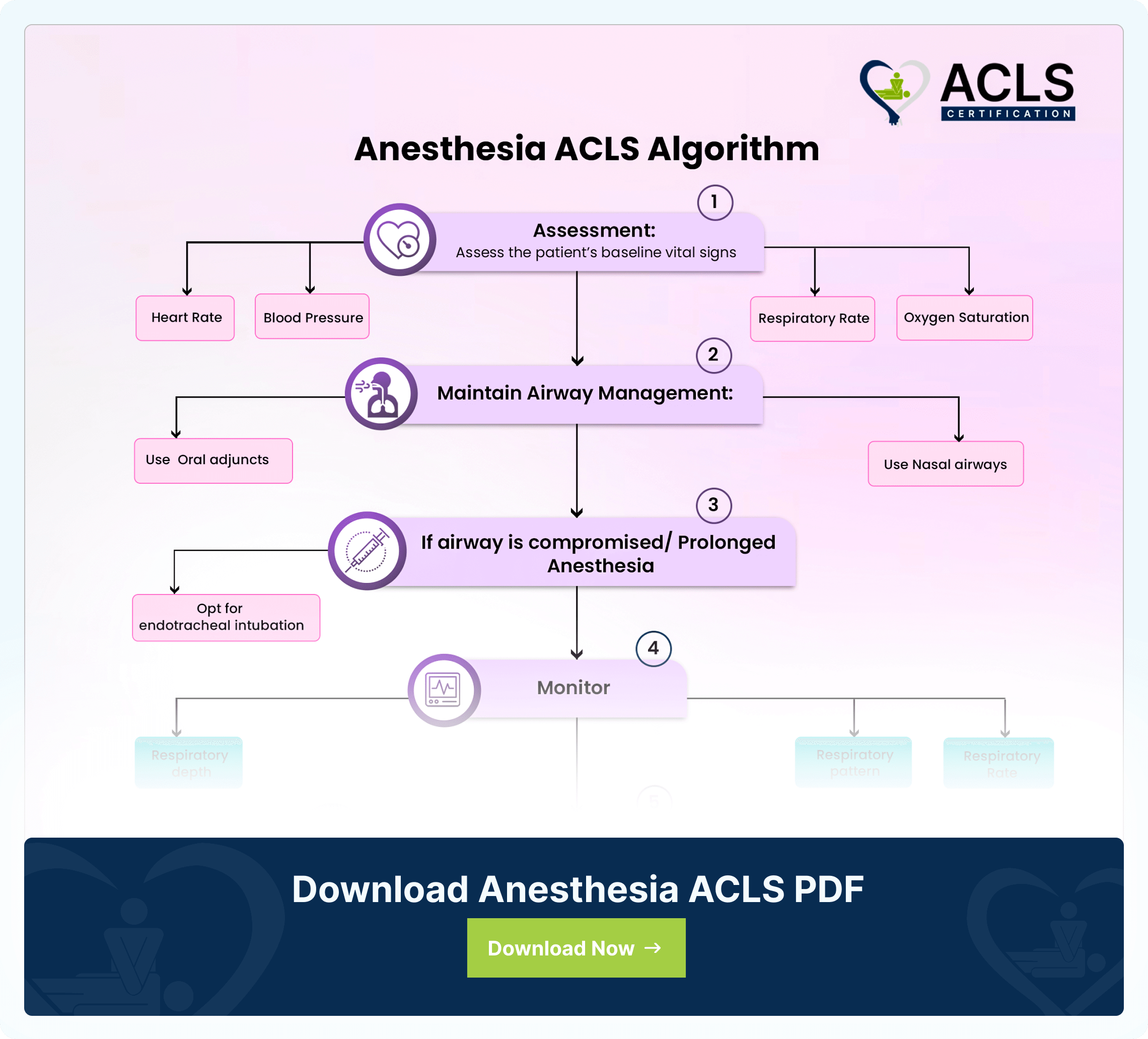
Anesthesia ACLS Algorithm
The ACLS Anesthesia Algorithm manages patients undergoing anesthesia, focusing on the importance of monitoring vital signs to avoid complications.
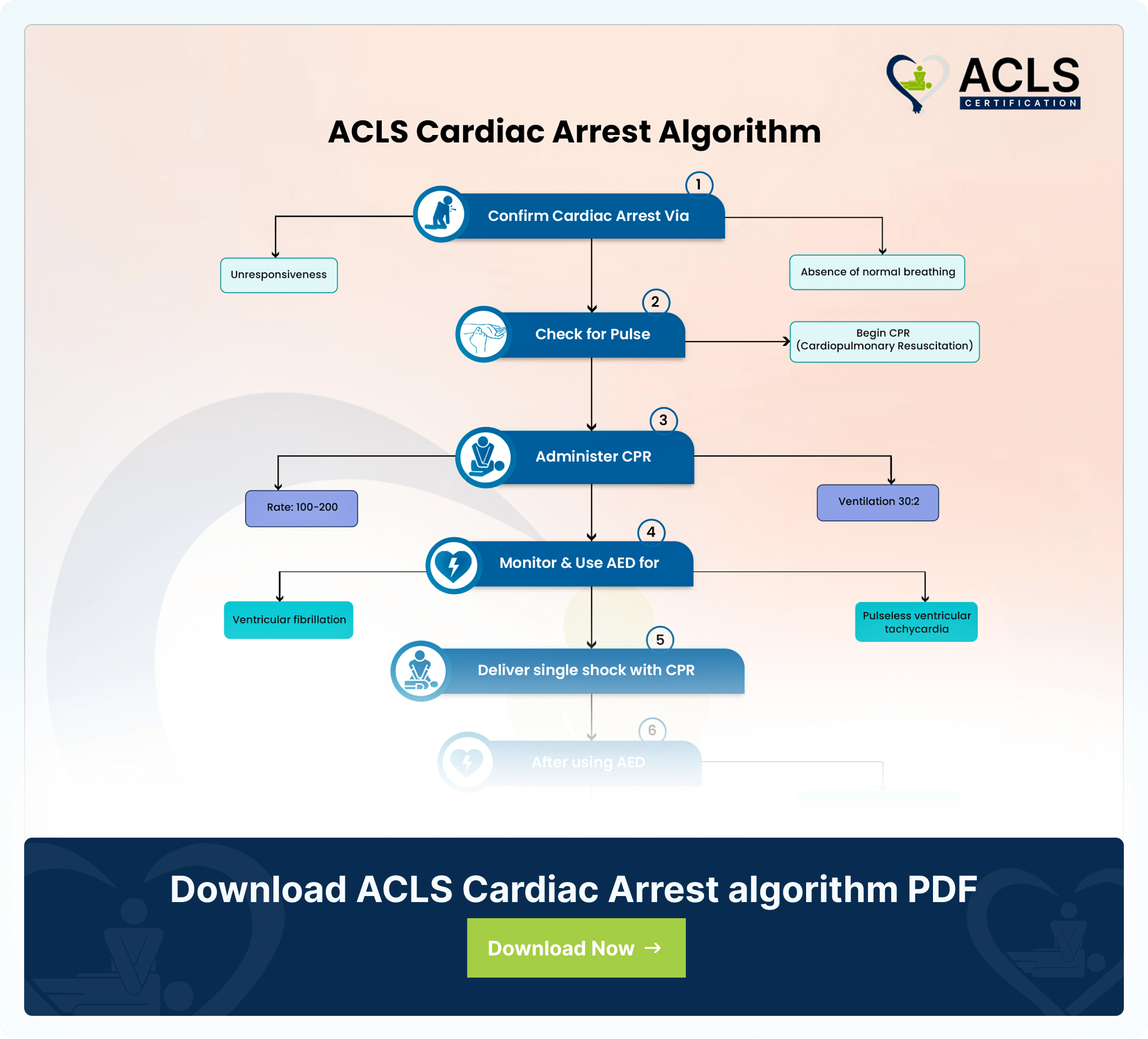
ACLS Cardiac Arrest Algorithm
The ACLS Cardiac Arrest Algorithm emphasizes CPR, defibrillation, drug therapy, and post-resuscitation care. It also highlights the importance of teamwork in optimizing outcomes during cardiac emergencies
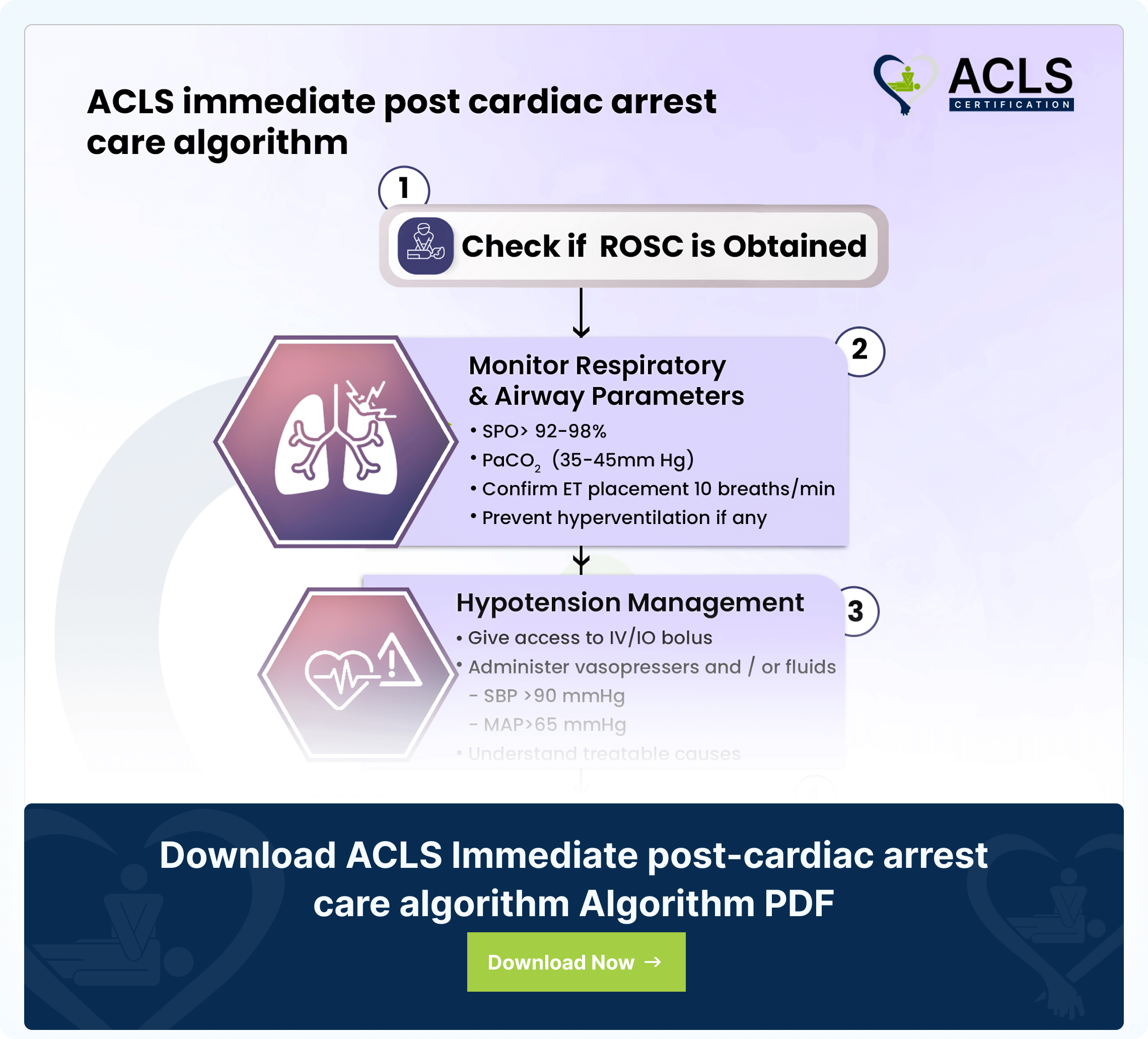
ACLS Immediate post-cardiac arrest care algorithm
The ACLS immediate post-cardiac arrest care algorithm guides critical interventions for patients post-resuscitation
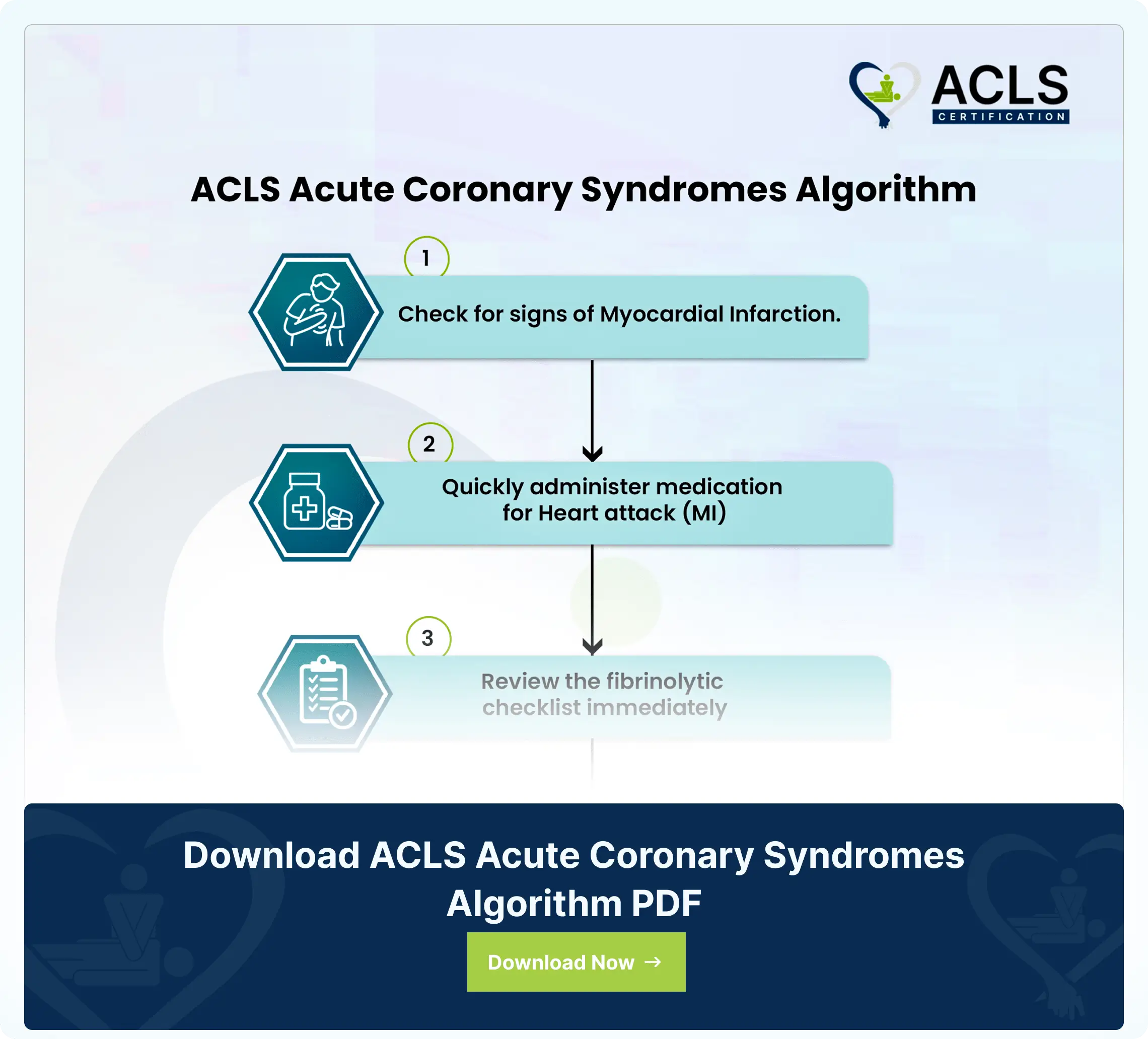
ACLS Acute Coronary Syndromes Algorithm
The ACLS Acute Coronary Syndromes Algorithm guides healthcare providers in the assessment, diagnosis, and treatment of patients with suspected or confirmed acute coronary syndromes
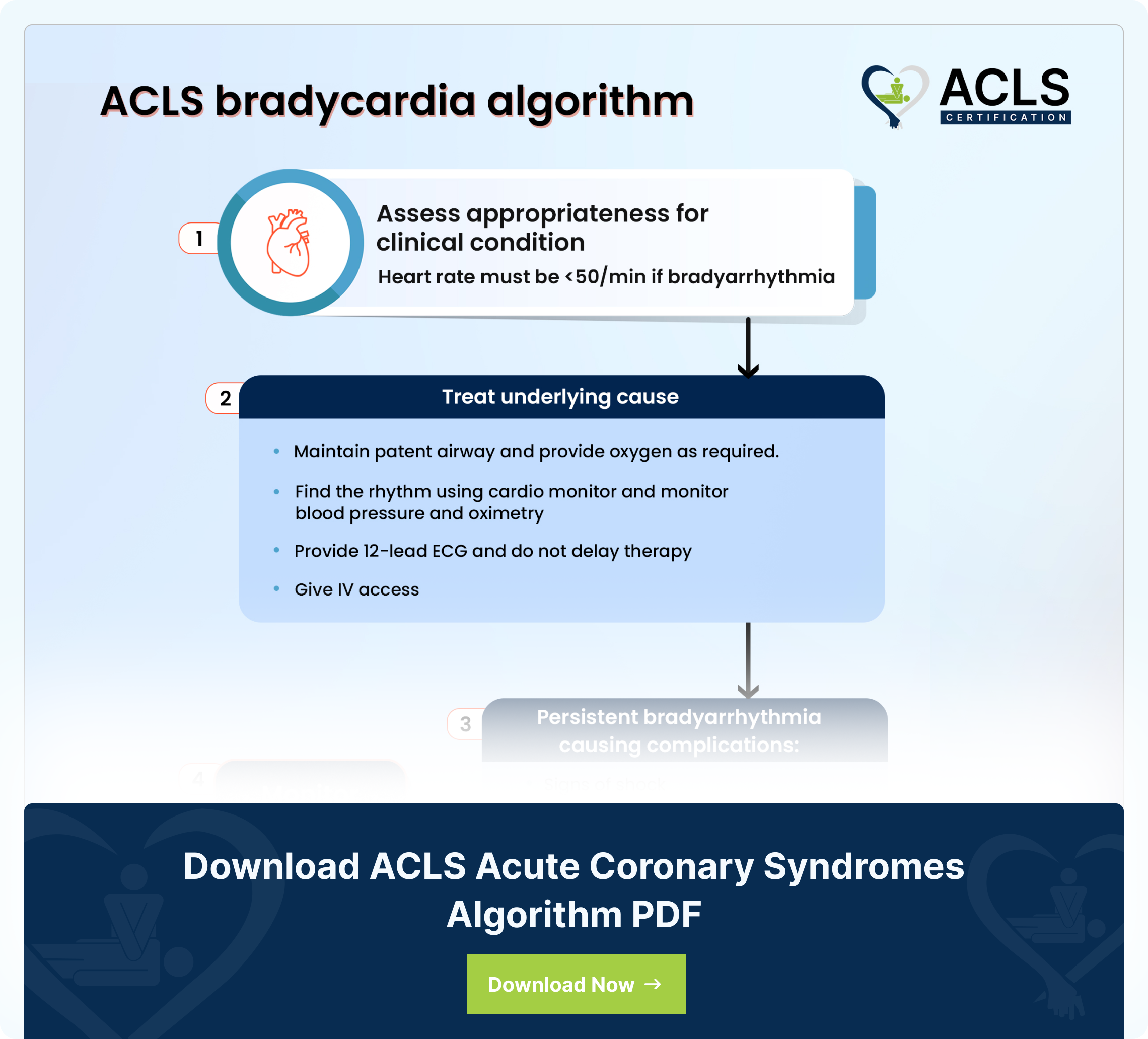
ACLS Bradycardia Algorithm
ACLS Bradycardia Algorithm: Assess, Stabilize, Intervene. Vital steps for life-saving care.
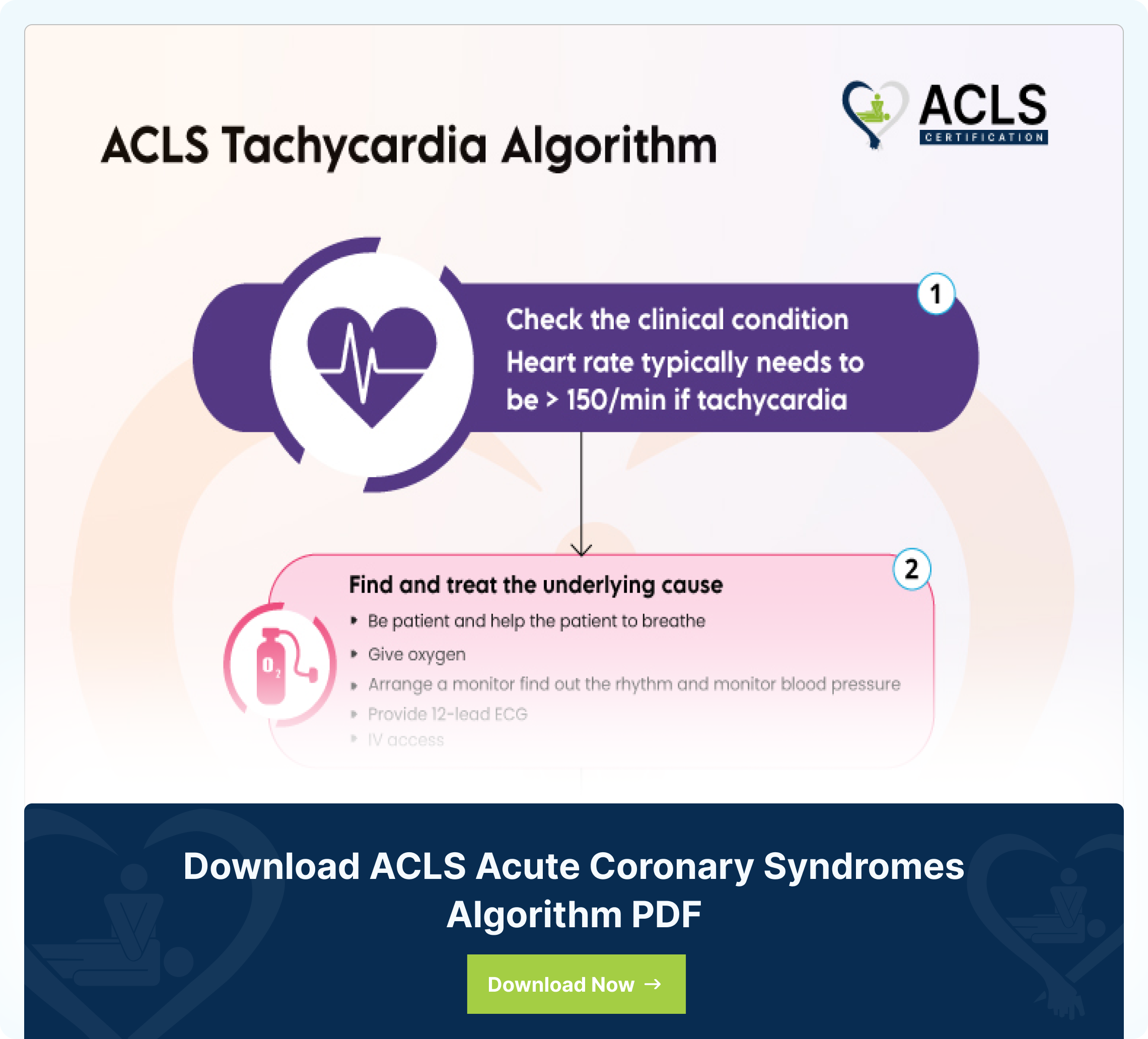
ACLS Tachycardia Algorithms
ACLS Tachycardia Algorithm: Rapidly assess, identify rhythm, address causes, and consider cardioversion or antiarrhythmics for optimal emergency care.
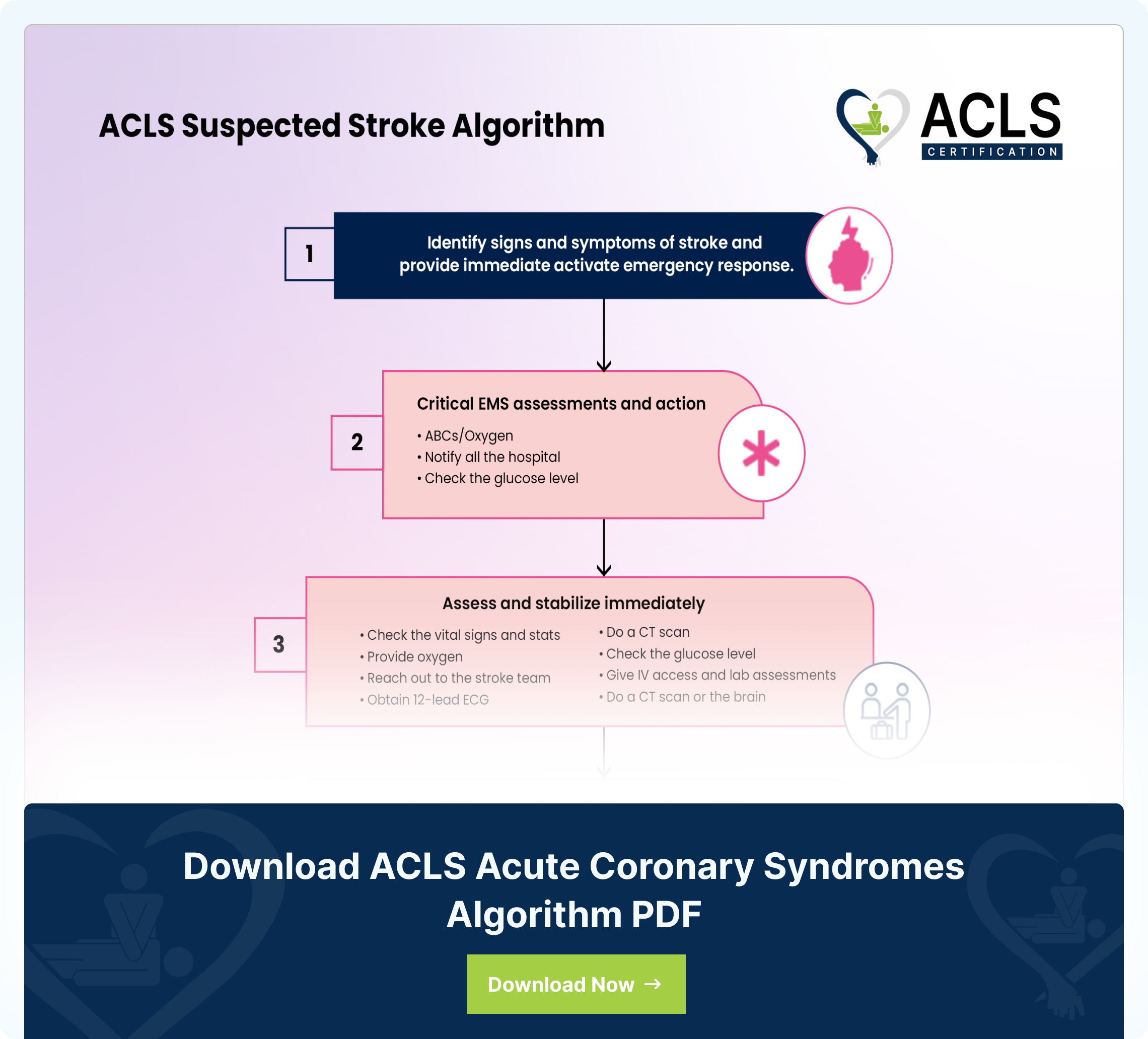
ACLS Suspected stroke algorithm
The ACLS Suspected Stroke Algorithm is a framework for managing potential stroke cases. It involves quick symptom recognition, supportive care, and providing appropriate treatment.
Why do you need ACLS algorithms?
ACLS algorithms are important because they provide a clear plan for doctors and nurses to follow during emergencies like cardiac arrest. These step-by-step guides help medical teams quickly assess the situation and take the right actions to save lives. By following ACLS algorithms, healthcare providers can give treatments like CPR and defibrillation in the right order and at the right time. This structured approach increases the chances of a person surviving a cardiac emergency. So, ACLS algorithms are crucial tools that help medical professionals work together effectively and give the best possible care during critical situations.
Available Courses
ACLS Certification and Recertification
Advanced Cardiovascular Life Support
- 4.0 – 8.0 CE Credit Hours
- 100% Online Accepted Course. Instant card download
- Includes Videos, Megacode Scenarios, Practice Tests & More
- Free BLS course with ACLS course
PALS Certification and Recertification
Pediatric Advanced Life Support
- 4.0 – 8.0 CE Credit Hours
- 100% Online Accepted Course. Instant card download
- Includes Videos, Megacode Scenarios, Practice Tests & More
- Free BLS course with ACLS course
BLS Certification and Recertification
Basic Life Support- CPR & First Aid
- 6.0 CE Credit Hours
- 100% Online Accepted Course. Instant card download
- Includes CPR & First Aid
- Bag-Mask Techniques
- Updated Guidelines


